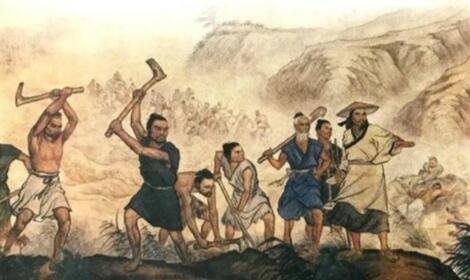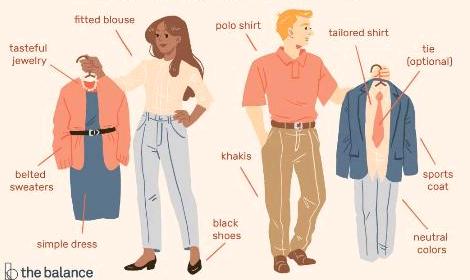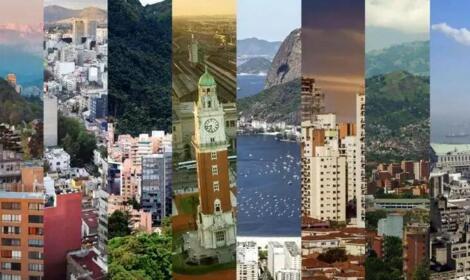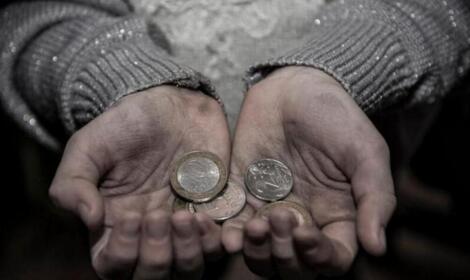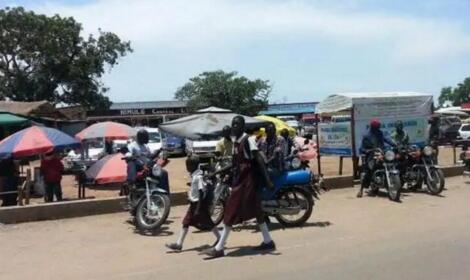“贫穷”的标准在非洲适用吗?
正文翻译
Innocent Masengo
That most Africans are poor, not because they really are poor, but because someone decides to describe them as such.
My grandfather is ‘poor’. He certainly lives on “less than a dollar a day”. He is now 95 years old. In his nine and a half decades on earth, he has never lacked, and he has never begged. He only attended one year at a mission school in the 1930s and learnt how to read and write. This is how he pulls it off:
大多数非洲人很穷,不是因为他们真的很穷,而是因为有人故意这么形容他们。
我爷爷很“穷”。他的生活费“每天不到一美元”。他现在95岁了。在他在世的90年里,他从未缺乏过,也从未乞求过。上世纪30年代,他只在教会学校上了一年学读写。他是这样做到的:
When he wants food, he goes to the banana plantation, looks at tens of bunches of matooke (banana) and decides which to harvest for the day’s dinner. Adjacent to the plantation is a sweet potato garden, cassava garden, yams and finger millet. To the south of the banana plantation are beans, cow peas or peanuts gardens. Down the valley is grazing land with tens of Frisian and cross-breed cattle. They provide him with milk daily, 365 days a year.
He also has about 20 goats. In Uganda, goat milk was generally not considered palatable, possibly due to the abundance of cow milk, so we never milked goats. He would sell a couple of them to supplement income from other produce to send his children to school. He also reared a couple of chickens, more as a hobby.
The farm produces more than he can consume. He sells the surplus to afford such essential services as kerosene (recently upgraded to solar), soap, sugar (at his age he no longer takes sugar, he uses honey — doctor’s orders).
当他想吃东西的时候,他就去香蕉种植园,看看几十串香蕉,然后决定收割哪一串作为当天的晚餐。毗邻种植园的是红薯园、木薯园、山药和䅟子。香蕉种植园的南面是豆类、豇豆或花生园。山谷尽头是牧场,有数十头弗里斯兰牛和杂交牛。他们每天都给他提供牛奶,一年365天。
他还有大约20只山羊。在乌干达,羊奶一般不被认为是可口的,可能是由于牛奶的丰富,所以我们从不挤羊奶。他会卖掉其中几只以贴补其他农产品的收入,供孩子们上学。他还养了几只鸡,更像是一种爱好。
农场生产的东西他吃不完。他把剩余的粮食卖掉,以购买煤油(最近已升级为太阳能)、肥皂、糖(他这个年纪已经不吃糖了,只吃蜂蜜——这是医生的指示)等基本服务。
Scattered across the farm are sugarcane (for eating, not for making sugar) and fruit trees (guava, mango, pawpaw, avocado, orange, passion fruit, pineapple). He drinks fresh juice from mangoes and passion fruit. As is evident, everything here is on a subsistence basis, but very organic. He has done this for the past 75 years.
He had eleven children, my mother being his first born. He sent all of them to school, saw eight of them through college. He sold at least two cows, some goats and some produce each school term to send his children to school.
I went to live at grandfather’s place when I was 5 years old. I left when I was 14 (my family lived in an urban area). I learnt how to farm, milk cows, tether goats, harvest fruits (by climbing the fruit tree) and harvesting honey (at night using smoke).
农场里散落着甘蔗(用来食用,不是用来制糖)和果树(番石榴、芒果、木瓜、鳄梨、橙子、百香果、菠萝)。他喝新鲜的芒果汁和百香果汁。很明显,这里的一切都是自给自足的,但都是有机的。在过去的75年里,他一直这样做。
他有11个孩子,我母亲是第一个孩子。他把他们都送进了学校,其中八个人读完了大学。为了送孩子们上学,他每个学期都要卖掉至少两头牛、几只山羊和一些农产品。
我5岁的时候去爷爷家住。我14岁的时候就离开了(我家住在市区)。我学会了如何耕种、挤牛奶、拴山羊、收割水果(爬上果树)和采蜜(晚上用烟熏)。
Why the long story?
My grandfather, just like millions of other Africans that live like him, is considered poor. He rarely holds money, and he rarely needs it. He produces most of what he needs. But using the standard World Bank/IMF descxtion of ‘poor’, my grandfather is poor. I live in the city and earn about USD 12,000 a year after tax, which in Uganda is a decent salary. But I can hardly match my grandfather in terms of providing for my family with fresh milk, fresh food and fresh fruits.
This is one thing most people that watch International media do not know about Africa: not all Africans are poor, many simply live differently than you.
为什么讲这么长?
我的祖父,就像数百万像他一样生活的非洲人一样,被认为是穷人。他很少持有钱,也很少需要钱。他生产了大部分他需要的东西。但是,按照世界银行/国际货币基金组织对“贫穷”的标准描述,我的祖父是贫穷的。我住在城市里,税后年收入约1.2万美元,这在乌干达是一份不错的薪水。但在为家人提供新鲜牛奶、新鲜食物和新鲜水果方面,我几乎比不上我祖父。
这是大多数看国际媒体的人不知道的一件事:并不是所有的非洲人都很穷,许多人只是生活方式与你不同。

Ugandan farmer riding bananas from his farm to the market. Most people from other backgrounds would pity him, and consider him ‘poor’.
乌干达农民载着香蕉从他的农场去市场。大多数来自其他背景的人都会同情他,认为他很“穷”。
That most Africans are poor, not because they really are poor, but because someone decides to describe them as such.
My grandfather is ‘poor’. He certainly lives on “less than a dollar a day”. He is now 95 years old. In his nine and a half decades on earth, he has never lacked, and he has never begged. He only attended one year at a mission school in the 1930s and learnt how to read and write. This is how he pulls it off:
大多数非洲人很穷,不是因为他们真的很穷,而是因为有人故意这么形容他们。
我爷爷很“穷”。他的生活费“每天不到一美元”。他现在95岁了。在他在世的90年里,他从未缺乏过,也从未乞求过。上世纪30年代,他只在教会学校上了一年学读写。他是这样做到的:
When he wants food, he goes to the banana plantation, looks at tens of bunches of matooke (banana) and decides which to harvest for the day’s dinner. Adjacent to the plantation is a sweet potato garden, cassava garden, yams and finger millet. To the south of the banana plantation are beans, cow peas or peanuts gardens. Down the valley is grazing land with tens of Frisian and cross-breed cattle. They provide him with milk daily, 365 days a year.
He also has about 20 goats. In Uganda, goat milk was generally not considered palatable, possibly due to the abundance of cow milk, so we never milked goats. He would sell a couple of them to supplement income from other produce to send his children to school. He also reared a couple of chickens, more as a hobby.
The farm produces more than he can consume. He sells the surplus to afford such essential services as kerosene (recently upgraded to solar), soap, sugar (at his age he no longer takes sugar, he uses honey — doctor’s orders).
当他想吃东西的时候,他就去香蕉种植园,看看几十串香蕉,然后决定收割哪一串作为当天的晚餐。毗邻种植园的是红薯园、木薯园、山药和䅟子。香蕉种植园的南面是豆类、豇豆或花生园。山谷尽头是牧场,有数十头弗里斯兰牛和杂交牛。他们每天都给他提供牛奶,一年365天。
他还有大约20只山羊。在乌干达,羊奶一般不被认为是可口的,可能是由于牛奶的丰富,所以我们从不挤羊奶。他会卖掉其中几只以贴补其他农产品的收入,供孩子们上学。他还养了几只鸡,更像是一种爱好。
农场生产的东西他吃不完。他把剩余的粮食卖掉,以购买煤油(最近已升级为太阳能)、肥皂、糖(他这个年纪已经不吃糖了,只吃蜂蜜——这是医生的指示)等基本服务。
Scattered across the farm are sugarcane (for eating, not for making sugar) and fruit trees (guava, mango, pawpaw, avocado, orange, passion fruit, pineapple). He drinks fresh juice from mangoes and passion fruit. As is evident, everything here is on a subsistence basis, but very organic. He has done this for the past 75 years.
He had eleven children, my mother being his first born. He sent all of them to school, saw eight of them through college. He sold at least two cows, some goats and some produce each school term to send his children to school.
I went to live at grandfather’s place when I was 5 years old. I left when I was 14 (my family lived in an urban area). I learnt how to farm, milk cows, tether goats, harvest fruits (by climbing the fruit tree) and harvesting honey (at night using smoke).
农场里散落着甘蔗(用来食用,不是用来制糖)和果树(番石榴、芒果、木瓜、鳄梨、橙子、百香果、菠萝)。他喝新鲜的芒果汁和百香果汁。很明显,这里的一切都是自给自足的,但都是有机的。在过去的75年里,他一直这样做。
他有11个孩子,我母亲是第一个孩子。他把他们都送进了学校,其中八个人读完了大学。为了送孩子们上学,他每个学期都要卖掉至少两头牛、几只山羊和一些农产品。
我5岁的时候去爷爷家住。我14岁的时候就离开了(我家住在市区)。我学会了如何耕种、挤牛奶、拴山羊、收割水果(爬上果树)和采蜜(晚上用烟熏)。
Why the long story?
My grandfather, just like millions of other Africans that live like him, is considered poor. He rarely holds money, and he rarely needs it. He produces most of what he needs. But using the standard World Bank/IMF descxtion of ‘poor’, my grandfather is poor. I live in the city and earn about USD 12,000 a year after tax, which in Uganda is a decent salary. But I can hardly match my grandfather in terms of providing for my family with fresh milk, fresh food and fresh fruits.
This is one thing most people that watch International media do not know about Africa: not all Africans are poor, many simply live differently than you.
为什么讲这么长?
我的祖父,就像数百万像他一样生活的非洲人一样,被认为是穷人。他很少持有钱,也很少需要钱。他生产了大部分他需要的东西。但是,按照世界银行/国际货币基金组织对“贫穷”的标准描述,我的祖父是贫穷的。我住在城市里,税后年收入约1.2万美元,这在乌干达是一份不错的薪水。但在为家人提供新鲜牛奶、新鲜食物和新鲜水果方面,我几乎比不上我祖父。
这是大多数看国际媒体的人不知道的一件事:并不是所有的非洲人都很穷,许多人只是生活方式与你不同。

Ugandan farmer riding bananas from his farm to the market. Most people from other backgrounds would pity him, and consider him ‘poor’.
乌干达农民载着香蕉从他的农场去市场。大多数来自其他背景的人都会同情他,认为他很“穷”。
评论翻译
Didier Champion
This is an interesting perspective. Never occured to me until now. Your grandfather is a champ. 95 years and still going. I need to pay visit for a lesson on how to last that long. I enjoyed reading your poetic-style written answer. Thank you
这是一个有趣的观点。直到现在我才知道。你爷爷是个“冠军”。95年了,还在活跃。我得去上一堂如何活那么久的课。我喜欢读你诗意的书面回答。谢谢你!
Myrte Jansen op de Haar to Didier Champion
He just described in detail how his grandfather lasted that long: You stay active, outside, take good care of what you own, you eat properly grown, fresh fruit and no bullshit, and you stay in touch with people. No stress, no offices, no hyper processed foods, no sitting still all day.
他只是详细描述了他祖父是如何活了那么久的:你要保持活跃,在户外,照顾好自己的东西,你吃正确种植的新鲜水果,不要胡扯,你要和人们保持联系。没有压力,没有办公室,没有过度加工的食品,不用整天坐着不动。
Stone Atwine
This is a very good answer. With lots of food for thought and amazing comments.
What is clear is that there’s a flaw in the World Bank’s definition of the poor. Perhaps it needs to be upxed.
My grandmother lives like this. The only money she ever spends is to buy salt, sugar and soap. She grows her own food, has a few cows that give her milk, butter, yoghurt, etc. She makes all the diary products herself. She rarely eats or buys meat and probably doesn’t even want it. She is not rich but she has led a good life.
这是一个很好的答案。有很多值得深思的地方和令人惊奇的评论。
很明显,世界银行对贫困人口的定义存在缺陷。也许它需要更新了。
我奶奶就是这样生活的。她唯一花过的钱就是买盐、糖和肥皂。她自己种植食物,有几头奶牛为她提供牛奶、黄油、酸奶等。所有的奶制品都是她自己做的。她很少吃肉或买肉,甚至可能根本不想吃肉。她并不富裕,但她过着很好的生活。
Innocent Masengo to Stone Atwine
And sadly, she is called poor and needy. Yet she lacks nothing.
可悲的是,她被称为贫穷和需要关注的。然而她什么都不缺。
Dharmavaram Thyagarajulu to Innocent Masengo
Self sustenance a great experience, subsistence is not inadequacy but it is self satisfaction those who experience it only understand its value. Though one is considered as poor but he live his life independently such an independence is possible only in the farming.
You answer though is simple but it is a reflection of honesty and innocence, one of the best I have read on quora.
自给自足是一种很棒的体验,自给自足不是不足,而是自我满足,只有经历过它的人才能理解它的价值。虽然一个人被认为是穷人,但他独立地过着自己的生活,这种独立性只有在农业中才有可能。
你的回答虽然很简单,但却反映了诚实和纯真,这是我在 quora 上读过的最好的答案之一。
Anand Nyamdavaa
Poverty measurement is a useful economtric tool. How else would you know if there ws a progress or not. But this tool has been abused too much. It doesnt always makes sense for everyday people. In my country, mongolia you are regarded as poor if you have 200 or less sheep.
贫困度量是一个有用的计量工具。否则你怎么知道是否有进展。但是这个工具被滥用得太多了。这对普通人来说并不总是有意义的。在我的国家蒙古,如果你有200只或更少的羊,你就被认为是穷人。
Cynthia Cerna to Anand Nyamdavaa
Damn. Not only am I considered a broke-ass mofo here in the U.S., but in Mongolia as well. Double-damn!
该死的。在美国,我不仅被认为是个穷光蛋,在蒙古也一样。两个都该死。
Vivek to Anand Nyamdavaa
Then I am already very poor. i don’t have a single sheep. Somebody please provide me some subsidies?
那我已经很穷了。我一只羊也没有。谁能给我一些补贴?
David Lim to Vivek
You can always find a bunch of sheep loitering in front of an Apple store during the launching date of a new iPhone. We never had any shortage of them.
在新款iPhone发布的日子里,你总能看到一群绵羊在苹果专卖店门口闲逛。我们从来不缺他们。
Claire Jordan
That’s also partly because people don’t understand the difference between the exchange rate and local buying power. They hear that somebody’s salary in a third world country is equivalent to say £5 a week and they think oh, how shocking, these poor people have to live on £5 a week - but the currency of third world countries tends to be disproportionately undervalued, and in terms of its purchasing power that person’s income is probably more like £50 or £100 a week. Or, as you say, they may have their own smallholding and be growing most of what they need, so their money income is just for things like clothes and petrol. And they probably own their house and work within walking distance, so they don’t have rent or mortgages or fares to worry about.
这在一定程度上也是因为人们不了解汇率和当地购买力之间的差异。他们听说在第三世界国家某人的工资相当于每周5英镑,他们会想,哦,多么令人震惊,这些穷人不得不每周靠5英镑生活,但第三世界国家的货币往往被不成比例地低估,就其购买力而言,那个人的收入可能更像是每周50或100英镑。或者,就像你说的,他们可能有自己的小农场,种植大部分他们需要的东西,所以他们的货币收入只用于购买衣服和汽油等东西。他们可能有自己的房子,工作地点步行就能到,所以他们不用担心房租、抵押贷款或车费问题。
John Hirst to Claire Jordan
Correct. Economists call this “purchasing power parity” and it’s good to adjust for this when comparing countries.
正确的。经济学家称之为“购买力平价”,比较各国时最好对此进行调整。
Felix Ryker to Claire Jordan
Accurate. I live in Bangladesh and although a lot of middle class families have the ability to buy a basic PC here, software and games would be so ridiculously expensive if converted according to their native price that most stores that sell these sell cracked, pirated copies. It’s the reason why piracy is so rampant in developing countries. We can afford hardware just fine, it’s the software that can’t be price converted reasonably. And that’s because of this disproportionate undervaluing that you’ve mentioned. I’ve never seen a game store here that actually sells legit consoles or games because no one would ever buy them.
准确的。我住在孟加拉国,虽然很多中产阶级家庭有能力在这里购买一台基本的个人电脑,但如果按照本地价格换算,软件和游戏会贵得离谱,以至于大多数商店都出售破解的盗版版本。这就是为什么盗版在发展中国家如此猖獗的原因。我们能买得起硬件,但软件不能合理地转换价格。这是因为你提到的不相称的低估。我从未见过一家游戏商店真正出售合法的主机或游戏,因为没有人会买它们。
Marius Kramer
You left out that he has property, real-estate and animals, which arr similr to a Westerner owning $300,000 in assets no?
你忽略了他有财产、不动产和动物,这类似于一个拥有30万美元资产的西方人,不是吗?
Biswa Jyoti
The real problem is present economic models can’t measure the production value of historic, civilizational and traditional lifestyles. It can only measure what the western world thinks measurable.
What you wrote about your grandparents is also true for most of Indians.
真正的问题是,目前的经济模式无法衡量历史、文明和传统生活方式的生产价值。它只能衡量西方世界认为可以衡量的东西。
你写的关于你祖父母的事情对大多数印度人来说也是正确的。
Innocent Masengo to Biswa Jyoti
I am glad that you can relate to it. And yes, a one-size-fits-all kind of scale is fundamentally flawed.
我很高兴你能理解它。是的,一种放之四海而皆准的标准从根本上是有缺陷的。
Raj Penumudy to Innocent Masengo
Whats worse they use this metric and then they want to “help”. Looks like their idea of help is to loan money to buy the useless crap that would turn an environmentally-friendly lifestyle into an urban mess and only benefit the big businesses in the process.
更糟糕的是,他们使用这个指标,然后他们想要“帮助”。看起来他们所谓的帮助就是借钱去买那些没用的垃圾,这些垃圾会把环保的生活方式变成城市的混乱,而且在这个过程中只会让大企业受益。
John Roberson
Western society has spent two centuries making aspects of life as “legible” as possible for metrics like this. For instance, a housewife’s work at home was originally excluded from GDP numbers, but if that housewife works for a salary and pays someone to do what was previously her work at home then it’s all now “legible” to GDP metrics.
Africans haven’t wasted nearly so much time doing this.
The future belongs to those who understand the illegible.
西方社会已经花了两个世纪的时间,使生活的各个方面尽可能“清晰”地使用这样的指标。例如,家庭主妇在家中的工作最初被排除在GDP数据之外,但如果家庭主妇为薪水工作,并支付某人做她以前在家中工作的工作,那么现在就可以“清晰”地衡量GDP了。
非洲人没有浪费这么多时间做这件事。
未来属于那些难以看清的人。
Ygor Coelho
Your answer is very well written, convincing and even poetic, but unfortunately I’m really skeptical that your 95-year-old grandfather is representative of the general citizens living in Africa and the average African peasant. I do believe you, but when I also consider many totally non-monetary measures of poverty, like life expectancy, undernourishment rate, infant mortality and so on, the pictures for most African countries are still v.e.r.y problematic. Living myself in an underdeveloped country with high level of inequality, I know rural life can be simple but wonderful when you own a fertile piece of land and a good number of domesticated animals, but it’s definitely very harsh when you own just a tiny land or you’re not a land owner.
你的回答写得很好,令人信服,甚至富有诗意,但不幸的是,我真的怀疑你95岁的祖父是生活在非洲的普通公民和普通非洲农民的代表。我确实相信你,但当我也考虑到许多完全非货币的贫困衡量标准时,比如预期寿命、营养不良率、婴儿死亡率等等,大多数非洲国家的情况仍然存在很多问题。我生活在一个不发达、不平等程度很高的国家,我知道当你拥有一块肥沃的土地和大量的家养动物时,农村生活可以简单而美好,但当你只有一小块土地或你不是土地所有者时,生活肯定是非常残酷的。
Harsh Deep to Ygor Coelho
Yes, his point was that not all ‘poor’ are poor. Many people in developing and underdeveloped countries have farming only for self-sustenance, and many people live decent lives.
There are huge problems of poverty, malnutrition, education etc. but the point is that western measures of poverty are not always the best.
是的,他的观点是,并非所有的“穷人”都是穷人。在发展中国家和欠发达国家,很多人种地只是为了糊口,也有很多人过着体面的生活。
贫困、营养不良、教育等问题非常严重,但关键是西方衡量贫困的标准并不总是最好的。
Michael Moldenhauer to Ygor Coelho
The real point of this is that, while perhaps maybe there is as you suggest “real poverty” in Africa (= low life expectancy, undernutrition, infant mortality, etc.) - it shows there is also something else which is neither this ‘real poverty’ nor western style opulence. Which suggests that you don’t necessarily need to make western style opulence to get away from “real poverty”, and that’s an important lesson I’d think especially given concerns about environmental sustainability, etc. - which do you think is more “green” eh? The West, or this “not-rich-not-poor” living? It shows there may be other paths to “development” - such as focusing on improving this kind of wealth, instead of, or at least more prioritized than, western style urbanization with attendant massive resource consumption, etc.
真正的问题是,也许也许像你说的那样,非洲有“真正的贫困”(=低预期寿命,营养不良,婴儿死亡率等),但这也表明,还有一些东西既不是“真正的贫困”,也不是西方式的富裕。这表明你不一定需要西式的富裕来摆脱“真正的贫困”,我认为这是一个重要的教训,尤其是考虑到环境的可持续性,等等——你认为哪个更“绿色”,嗯?西方,还是这种“不富不穷”的生活?这表明“发展”可能有其他的路径——比如专注于改善这种财富,而不是,或者至少比伴随着大量资源消耗的西方式城市化更优先,等等。
John Barr to Ygor Coelho
I am a European African. Ie white African. His answer is spot on. Many Rural African do live as described, and thus well below the poverty line. The thing is any of these people are happy and in terms of Maslow their basic needs are being very well met.
我是欧裔非洲人。即非洲白人。他的回答很正确。许多非洲农村人的生活确实如描述的那样,因此远远低于贫困线。这些人都很快乐,根据马斯洛理论,他们的基本需求得到了很好的满足。
Rakesh Ranjan
Finally someone called out on the bullshit definition of poverty as defined by the western world. Thanks for posting an answer which concurs with my school of thought.
最后,有人大声疾呼西方世界对贫困的定义是胡说八道。谢谢你发表了一个与我想法一致的答案。
Murphy Barrett to Rakesh Ranjan
I am from the Western world, and I agree, the definition of poverty most of us use is based on our way of life. Having both traveled and being well read, as well as an amateur historian, it always drives me crazy that a person who can supply their own needs, who is self sufficient, is often described as “poor”.
我来自西方世界,我同意,我们大多数人对贫困的定义是基于我们的生活方式。我旅行过,读过很多书,还是个业余历史学家,一个能自给自足的人经常被描述为“穷人”,这总是让我抓狂。
Abhirup Dutta
While the answer is insightful, poverty measurement is not simply about physical obxts like milk and bananas.
It is about safety-nets and opportunities in life.
What happens in case of diseases or epidemics - how far is the nearest clinic? What happens in case of wildfires or floods?
What happens in case of impending political conflicts - can you move and change job? What happens if someone inflicts harm on you - do you have course for justice?
Poverty means living and dying with the land, and being unable to escape that fate.
虽然答案很有见地,但衡量贫困并不仅仅是牛奶和香蕉这样的实物。
它与生活中的保障体系和机会密切相关。
如果发生疾病或流行病,最近的诊所有多远?如果发生野火或洪水会发生什么?
万一发生政治冲突怎么办——你能搬家换工作吗?如果有人伤害了你,你有伸张正义的办法吗?
贫穷意味着与土地同生同死,无法逃避这种命运。
This is an interesting perspective. Never occured to me until now. Your grandfather is a champ. 95 years and still going. I need to pay visit for a lesson on how to last that long. I enjoyed reading your poetic-style written answer. Thank you
这是一个有趣的观点。直到现在我才知道。你爷爷是个“冠军”。95年了,还在活跃。我得去上一堂如何活那么久的课。我喜欢读你诗意的书面回答。谢谢你!
Myrte Jansen op de Haar to Didier Champion
He just described in detail how his grandfather lasted that long: You stay active, outside, take good care of what you own, you eat properly grown, fresh fruit and no bullshit, and you stay in touch with people. No stress, no offices, no hyper processed foods, no sitting still all day.
他只是详细描述了他祖父是如何活了那么久的:你要保持活跃,在户外,照顾好自己的东西,你吃正确种植的新鲜水果,不要胡扯,你要和人们保持联系。没有压力,没有办公室,没有过度加工的食品,不用整天坐着不动。
Stone Atwine
This is a very good answer. With lots of food for thought and amazing comments.
What is clear is that there’s a flaw in the World Bank’s definition of the poor. Perhaps it needs to be upxed.
My grandmother lives like this. The only money she ever spends is to buy salt, sugar and soap. She grows her own food, has a few cows that give her milk, butter, yoghurt, etc. She makes all the diary products herself. She rarely eats or buys meat and probably doesn’t even want it. She is not rich but she has led a good life.
这是一个很好的答案。有很多值得深思的地方和令人惊奇的评论。
很明显,世界银行对贫困人口的定义存在缺陷。也许它需要更新了。
我奶奶就是这样生活的。她唯一花过的钱就是买盐、糖和肥皂。她自己种植食物,有几头奶牛为她提供牛奶、黄油、酸奶等。所有的奶制品都是她自己做的。她很少吃肉或买肉,甚至可能根本不想吃肉。她并不富裕,但她过着很好的生活。
Innocent Masengo to Stone Atwine
And sadly, she is called poor and needy. Yet she lacks nothing.
可悲的是,她被称为贫穷和需要关注的。然而她什么都不缺。
Dharmavaram Thyagarajulu to Innocent Masengo
Self sustenance a great experience, subsistence is not inadequacy but it is self satisfaction those who experience it only understand its value. Though one is considered as poor but he live his life independently such an independence is possible only in the farming.
You answer though is simple but it is a reflection of honesty and innocence, one of the best I have read on quora.
自给自足是一种很棒的体验,自给自足不是不足,而是自我满足,只有经历过它的人才能理解它的价值。虽然一个人被认为是穷人,但他独立地过着自己的生活,这种独立性只有在农业中才有可能。
你的回答虽然很简单,但却反映了诚实和纯真,这是我在 quora 上读过的最好的答案之一。
Anand Nyamdavaa
Poverty measurement is a useful economtric tool. How else would you know if there ws a progress or not. But this tool has been abused too much. It doesnt always makes sense for everyday people. In my country, mongolia you are regarded as poor if you have 200 or less sheep.
贫困度量是一个有用的计量工具。否则你怎么知道是否有进展。但是这个工具被滥用得太多了。这对普通人来说并不总是有意义的。在我的国家蒙古,如果你有200只或更少的羊,你就被认为是穷人。
Cynthia Cerna to Anand Nyamdavaa
Damn. Not only am I considered a broke-ass mofo here in the U.S., but in Mongolia as well. Double-damn!
该死的。在美国,我不仅被认为是个穷光蛋,在蒙古也一样。两个都该死。
Vivek to Anand Nyamdavaa
Then I am already very poor. i don’t have a single sheep. Somebody please provide me some subsidies?
那我已经很穷了。我一只羊也没有。谁能给我一些补贴?
David Lim to Vivek
You can always find a bunch of sheep loitering in front of an Apple store during the launching date of a new iPhone. We never had any shortage of them.
在新款iPhone发布的日子里,你总能看到一群绵羊在苹果专卖店门口闲逛。我们从来不缺他们。
Claire Jordan
That’s also partly because people don’t understand the difference between the exchange rate and local buying power. They hear that somebody’s salary in a third world country is equivalent to say £5 a week and they think oh, how shocking, these poor people have to live on £5 a week - but the currency of third world countries tends to be disproportionately undervalued, and in terms of its purchasing power that person’s income is probably more like £50 or £100 a week. Or, as you say, they may have their own smallholding and be growing most of what they need, so their money income is just for things like clothes and petrol. And they probably own their house and work within walking distance, so they don’t have rent or mortgages or fares to worry about.
这在一定程度上也是因为人们不了解汇率和当地购买力之间的差异。他们听说在第三世界国家某人的工资相当于每周5英镑,他们会想,哦,多么令人震惊,这些穷人不得不每周靠5英镑生活,但第三世界国家的货币往往被不成比例地低估,就其购买力而言,那个人的收入可能更像是每周50或100英镑。或者,就像你说的,他们可能有自己的小农场,种植大部分他们需要的东西,所以他们的货币收入只用于购买衣服和汽油等东西。他们可能有自己的房子,工作地点步行就能到,所以他们不用担心房租、抵押贷款或车费问题。
John Hirst to Claire Jordan
Correct. Economists call this “purchasing power parity” and it’s good to adjust for this when comparing countries.
正确的。经济学家称之为“购买力平价”,比较各国时最好对此进行调整。
Felix Ryker to Claire Jordan
Accurate. I live in Bangladesh and although a lot of middle class families have the ability to buy a basic PC here, software and games would be so ridiculously expensive if converted according to their native price that most stores that sell these sell cracked, pirated copies. It’s the reason why piracy is so rampant in developing countries. We can afford hardware just fine, it’s the software that can’t be price converted reasonably. And that’s because of this disproportionate undervaluing that you’ve mentioned. I’ve never seen a game store here that actually sells legit consoles or games because no one would ever buy them.
准确的。我住在孟加拉国,虽然很多中产阶级家庭有能力在这里购买一台基本的个人电脑,但如果按照本地价格换算,软件和游戏会贵得离谱,以至于大多数商店都出售破解的盗版版本。这就是为什么盗版在发展中国家如此猖獗的原因。我们能买得起硬件,但软件不能合理地转换价格。这是因为你提到的不相称的低估。我从未见过一家游戏商店真正出售合法的主机或游戏,因为没有人会买它们。
Marius Kramer
You left out that he has property, real-estate and animals, which arr similr to a Westerner owning $300,000 in assets no?
你忽略了他有财产、不动产和动物,这类似于一个拥有30万美元资产的西方人,不是吗?
Biswa Jyoti
The real problem is present economic models can’t measure the production value of historic, civilizational and traditional lifestyles. It can only measure what the western world thinks measurable.
What you wrote about your grandparents is also true for most of Indians.
真正的问题是,目前的经济模式无法衡量历史、文明和传统生活方式的生产价值。它只能衡量西方世界认为可以衡量的东西。
你写的关于你祖父母的事情对大多数印度人来说也是正确的。
Innocent Masengo to Biswa Jyoti
I am glad that you can relate to it. And yes, a one-size-fits-all kind of scale is fundamentally flawed.
我很高兴你能理解它。是的,一种放之四海而皆准的标准从根本上是有缺陷的。
Raj Penumudy to Innocent Masengo
Whats worse they use this metric and then they want to “help”. Looks like their idea of help is to loan money to buy the useless crap that would turn an environmentally-friendly lifestyle into an urban mess and only benefit the big businesses in the process.
更糟糕的是,他们使用这个指标,然后他们想要“帮助”。看起来他们所谓的帮助就是借钱去买那些没用的垃圾,这些垃圾会把环保的生活方式变成城市的混乱,而且在这个过程中只会让大企业受益。
John Roberson
Western society has spent two centuries making aspects of life as “legible” as possible for metrics like this. For instance, a housewife’s work at home was originally excluded from GDP numbers, but if that housewife works for a salary and pays someone to do what was previously her work at home then it’s all now “legible” to GDP metrics.
Africans haven’t wasted nearly so much time doing this.
The future belongs to those who understand the illegible.
西方社会已经花了两个世纪的时间,使生活的各个方面尽可能“清晰”地使用这样的指标。例如,家庭主妇在家中的工作最初被排除在GDP数据之外,但如果家庭主妇为薪水工作,并支付某人做她以前在家中工作的工作,那么现在就可以“清晰”地衡量GDP了。
非洲人没有浪费这么多时间做这件事。
未来属于那些难以看清的人。
Ygor Coelho
Your answer is very well written, convincing and even poetic, but unfortunately I’m really skeptical that your 95-year-old grandfather is representative of the general citizens living in Africa and the average African peasant. I do believe you, but when I also consider many totally non-monetary measures of poverty, like life expectancy, undernourishment rate, infant mortality and so on, the pictures for most African countries are still v.e.r.y problematic. Living myself in an underdeveloped country with high level of inequality, I know rural life can be simple but wonderful when you own a fertile piece of land and a good number of domesticated animals, but it’s definitely very harsh when you own just a tiny land or you’re not a land owner.
你的回答写得很好,令人信服,甚至富有诗意,但不幸的是,我真的怀疑你95岁的祖父是生活在非洲的普通公民和普通非洲农民的代表。我确实相信你,但当我也考虑到许多完全非货币的贫困衡量标准时,比如预期寿命、营养不良率、婴儿死亡率等等,大多数非洲国家的情况仍然存在很多问题。我生活在一个不发达、不平等程度很高的国家,我知道当你拥有一块肥沃的土地和大量的家养动物时,农村生活可以简单而美好,但当你只有一小块土地或你不是土地所有者时,生活肯定是非常残酷的。
Harsh Deep to Ygor Coelho
Yes, his point was that not all ‘poor’ are poor. Many people in developing and underdeveloped countries have farming only for self-sustenance, and many people live decent lives.
There are huge problems of poverty, malnutrition, education etc. but the point is that western measures of poverty are not always the best.
是的,他的观点是,并非所有的“穷人”都是穷人。在发展中国家和欠发达国家,很多人种地只是为了糊口,也有很多人过着体面的生活。
贫困、营养不良、教育等问题非常严重,但关键是西方衡量贫困的标准并不总是最好的。
Michael Moldenhauer to Ygor Coelho
The real point of this is that, while perhaps maybe there is as you suggest “real poverty” in Africa (= low life expectancy, undernutrition, infant mortality, etc.) - it shows there is also something else which is neither this ‘real poverty’ nor western style opulence. Which suggests that you don’t necessarily need to make western style opulence to get away from “real poverty”, and that’s an important lesson I’d think especially given concerns about environmental sustainability, etc. - which do you think is more “green” eh? The West, or this “not-rich-not-poor” living? It shows there may be other paths to “development” - such as focusing on improving this kind of wealth, instead of, or at least more prioritized than, western style urbanization with attendant massive resource consumption, etc.
真正的问题是,也许也许像你说的那样,非洲有“真正的贫困”(=低预期寿命,营养不良,婴儿死亡率等),但这也表明,还有一些东西既不是“真正的贫困”,也不是西方式的富裕。这表明你不一定需要西式的富裕来摆脱“真正的贫困”,我认为这是一个重要的教训,尤其是考虑到环境的可持续性,等等——你认为哪个更“绿色”,嗯?西方,还是这种“不富不穷”的生活?这表明“发展”可能有其他的路径——比如专注于改善这种财富,而不是,或者至少比伴随着大量资源消耗的西方式城市化更优先,等等。
John Barr to Ygor Coelho
I am a European African. Ie white African. His answer is spot on. Many Rural African do live as described, and thus well below the poverty line. The thing is any of these people are happy and in terms of Maslow their basic needs are being very well met.
我是欧裔非洲人。即非洲白人。他的回答很正确。许多非洲农村人的生活确实如描述的那样,因此远远低于贫困线。这些人都很快乐,根据马斯洛理论,他们的基本需求得到了很好的满足。
Rakesh Ranjan
Finally someone called out on the bullshit definition of poverty as defined by the western world. Thanks for posting an answer which concurs with my school of thought.
最后,有人大声疾呼西方世界对贫困的定义是胡说八道。谢谢你发表了一个与我想法一致的答案。
Murphy Barrett to Rakesh Ranjan
I am from the Western world, and I agree, the definition of poverty most of us use is based on our way of life. Having both traveled and being well read, as well as an amateur historian, it always drives me crazy that a person who can supply their own needs, who is self sufficient, is often described as “poor”.
我来自西方世界,我同意,我们大多数人对贫困的定义是基于我们的生活方式。我旅行过,读过很多书,还是个业余历史学家,一个能自给自足的人经常被描述为“穷人”,这总是让我抓狂。
Abhirup Dutta
While the answer is insightful, poverty measurement is not simply about physical obxts like milk and bananas.
It is about safety-nets and opportunities in life.
What happens in case of diseases or epidemics - how far is the nearest clinic? What happens in case of wildfires or floods?
What happens in case of impending political conflicts - can you move and change job? What happens if someone inflicts harm on you - do you have course for justice?
Poverty means living and dying with the land, and being unable to escape that fate.
虽然答案很有见地,但衡量贫困并不仅仅是牛奶和香蕉这样的实物。
它与生活中的保障体系和机会密切相关。
如果发生疾病或流行病,最近的诊所有多远?如果发生野火或洪水会发生什么?
万一发生政治冲突怎么办——你能搬家换工作吗?如果有人伤害了你,你有伸张正义的办法吗?
贫穷意味着与土地同生同死,无法逃避这种命运。

